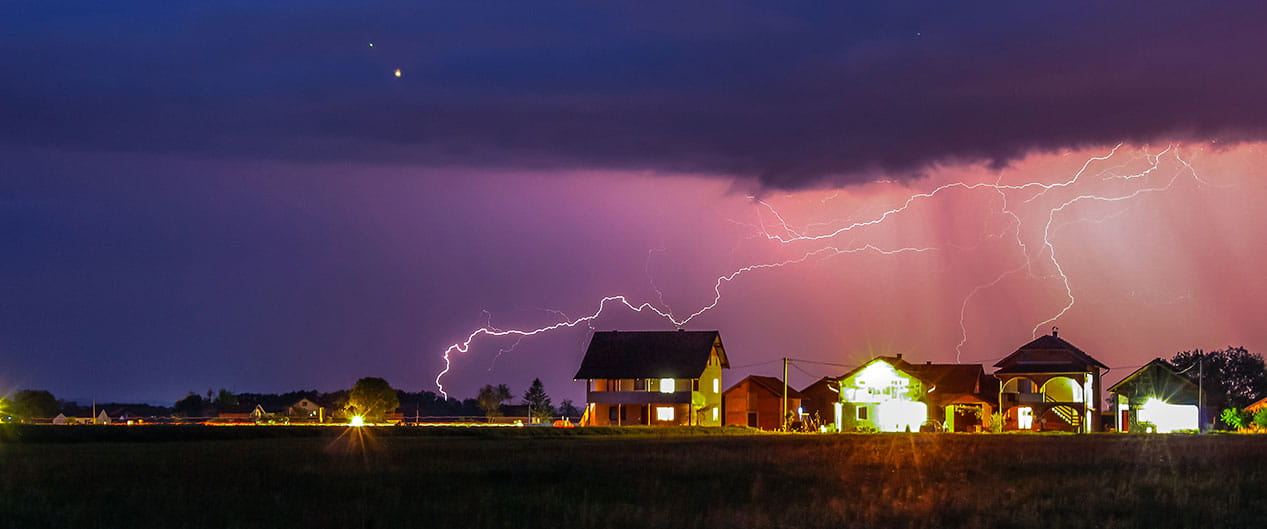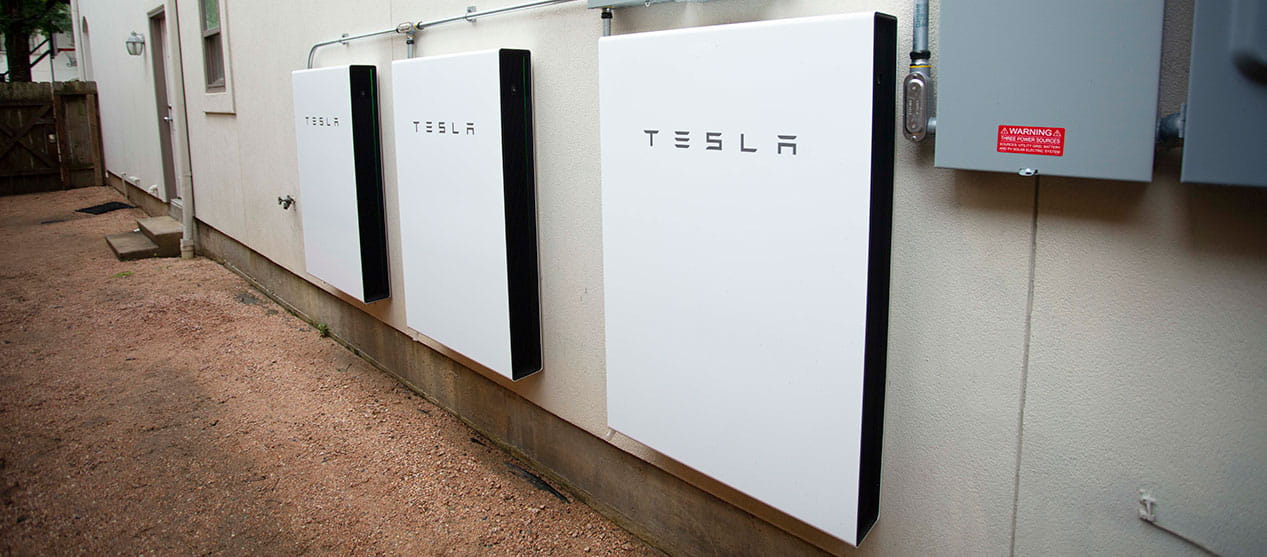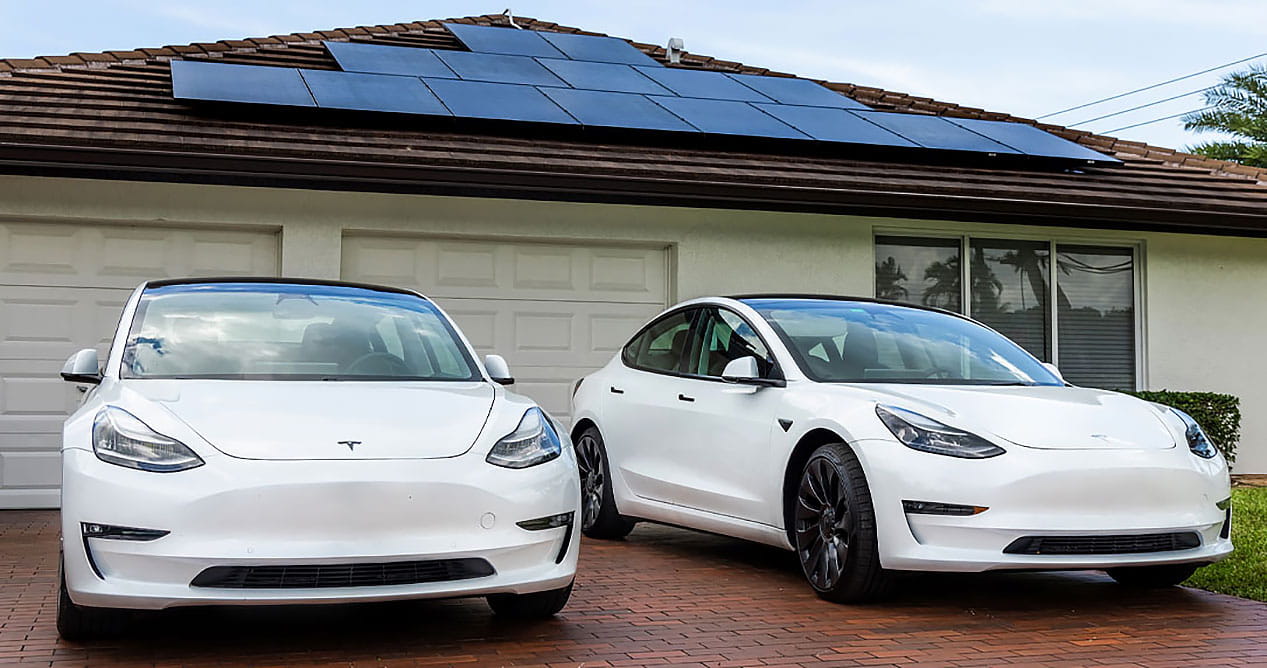

Energy storage technology has been around for decades.
While batteries themselves date back to the 1800s, the first lithium-ion batteries used in solar storage were developed in the 1970s and commercialized by Sony in 1991.* Since then, battery technology has rapidly evolved, and is helping expedite the transition from fossil fuels to renewable energy.
Battery storage technology is a key component to ensuring solar-powered homes can maintain power when the sun isn’t shining.
If you’re wondering if it is worth getting a solar battery, there are a few factors to consider. If you want to use less energy from the power grid, help protect your home against outages, and maximize the return on your solar investment, then the answer is yes.
If you have solar, your panels generate energy when the sun is out, but you can only use that power in real time (meaning, there’s no way to save the power for later). Adding energy storage to your home solar system lets you store the excess energy your panels produce. This means you can save your own renewable energy and use it at night or when electricity demand is the highest instead of drawing power from the grid.
Here are our top reasons to consider adding a battery to your solar system:
Weather-Related Outages are Surging Nationwide

Across the U.S., power outages are increasing as our climate changes and our nation’s infrastructure becomes more and more vulnerable.
In fact, over the past two decades, more than 80% of all reported power outages were caused by weather-related events.
The findings, compiled by Climate Central, a nonprofit research group, break down the types of weather events that have led to outages:*
- 58% caused by severe weather (high wind, rain and thunderstorms)
- 22% caused by winter weather (snow, ice and freezing rain)
- 15% caused by tropical storms and hurricanes
- 5% caused by extreme heat and wildfires
Where are the outages happening? While virtually any state can be susceptible to weather-related outages, Climate Central found that from 2000 to 2021:
- The Southeast had the most overall
- The Midwest ranked second, but topped the charts in outages caused by severe weather
- The top states in order: Texas, Michigan, California, North Carolina and Pennsylvania
Puerto Rico is particularly prone to power outages. Its aging grid and lack of maintenance leave residents subject to regular, even daily outages that are closing schools, causing traffic nightmares, and threatening health and safety.*
When you have a solar-only system, you cannot store power for later use, such as during a grid interruption. A solar + storage system can help you power your most needed lights and appliances during a power outage. In addition, if the grid goes down, your solar-only system will shut down as a safety feature. When you add a battery to your home solar system, your solar panels can continue to generate energy during a grid outage, which can be stored in your battery.*
Get the Maximum Economic Benefit from Your Solar System

If you still find yourself asking, “Should I get a battery with my solar system?” then consider the financial benefit. Today’s solar batteries can do more than just charge and power your most needed lights and appliances. There are different battery storage configuration options that can help maximize your savings if you live in an area with time-based electricity rates. If you’re a Sunnova customer, we will configure your battery to make sure you get the maximum economic benefit from your solar + storage system.*
When we install and configure your solar battery, we look at your relationship with the grid and your utility. From there, we work to make sure your battery will power your critical loads while taking full advantage of any incentives or rebates you may qualify for.
Time of Use and Net Metering Considerations
If your utility implements TOU rates, the amount you pay for each kilowatt-hour (kWh) of electricity will vary based on the time of day. During peak demand hours, grid electricity costs more, and net metering credits are higher.
If you’re a Sunnova customer, we can configure your system to send any excess energy back to the grid during peak hours to help you maximize the bill credits you receive from your utility.
- For customers with retail rate net metering, your battery may be configured to provide maximum backup power in case of a grid outage, or programmed in self-consumption mode to provide daily power.
- For customers without net metering, we can configure your solar battery for maximum self-consumption, which allows your battery to power your home at night. This way, you can limit the amount of electricity you pull from the grid, but still have the option to draw additional power if needed.
Increase your Energy Independence

No matter where you live and what your local utility conditions are, a home solar plus storage system, combined with smart energy consumption can help you minimize your use of grid-tied power and maximize your energy savings.
All this sounds great, but how much does a solar battery cost?
At Sunnova, we offer two ways to install a solar battery:
- Sunnova SunSafe® – Install a home solar system with battery storage simultaneously
- Sunnova +SunSafe® – Add a battery to an existing solar system (whether it’s a Sunnova system or from another solar provider)
Sunnova also offers a wide array of financing options that include permitting, labor, and more. If you own your system, you may be able to take advantage of different incentives, such as the federal tax credit, which can help you recover some of the retail cost of your solar battery.* You may also be eligible for local incentives. For example, customers in California may apply for the California Self Generation Incentive Program (SGIP). When combined, the federal tax credit and SGIP incentive may help you cover up to half the retail cost of a solar battery.
Are solar backup batteries worth it in the long run? Absolutely. From supplying your home with power during an outrage to helping minimize the amount of electricity to pull from the power grid, a battery is a practical and beneficial addition to any home solar system.

